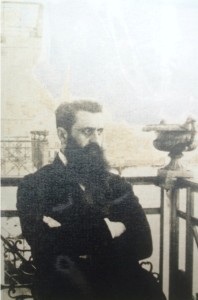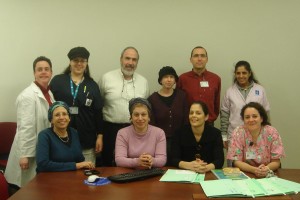David Ben-Gurion on Herzl, Zionism and Zion
Matia Kam
“News swept through the town: Messiah has arrived”

David Ben-Gurion (1886-1973) did not meet, nor did he get to see Benjamin Ze’ev Theodore Herzl (1860-1904). But that image of Herzl as the messiah, was etched in Ben-Gurion’s memory. It was Herzl who brought to the town of Plonsk, where Ben Gurion grew up, the Zionist message. Eight years later, Herzl died unexpectedly and Ben-Gurion wrote of the shock at his untimely death, which dashed so many Jewish hopes. “In the summer of 1904 our town was stunned by the news: Herzl was dead. It is hard to describe what a blow it was for all of us, young and old. I was profoundly depressed—darkness filled my world, the light was gone from my life.”
